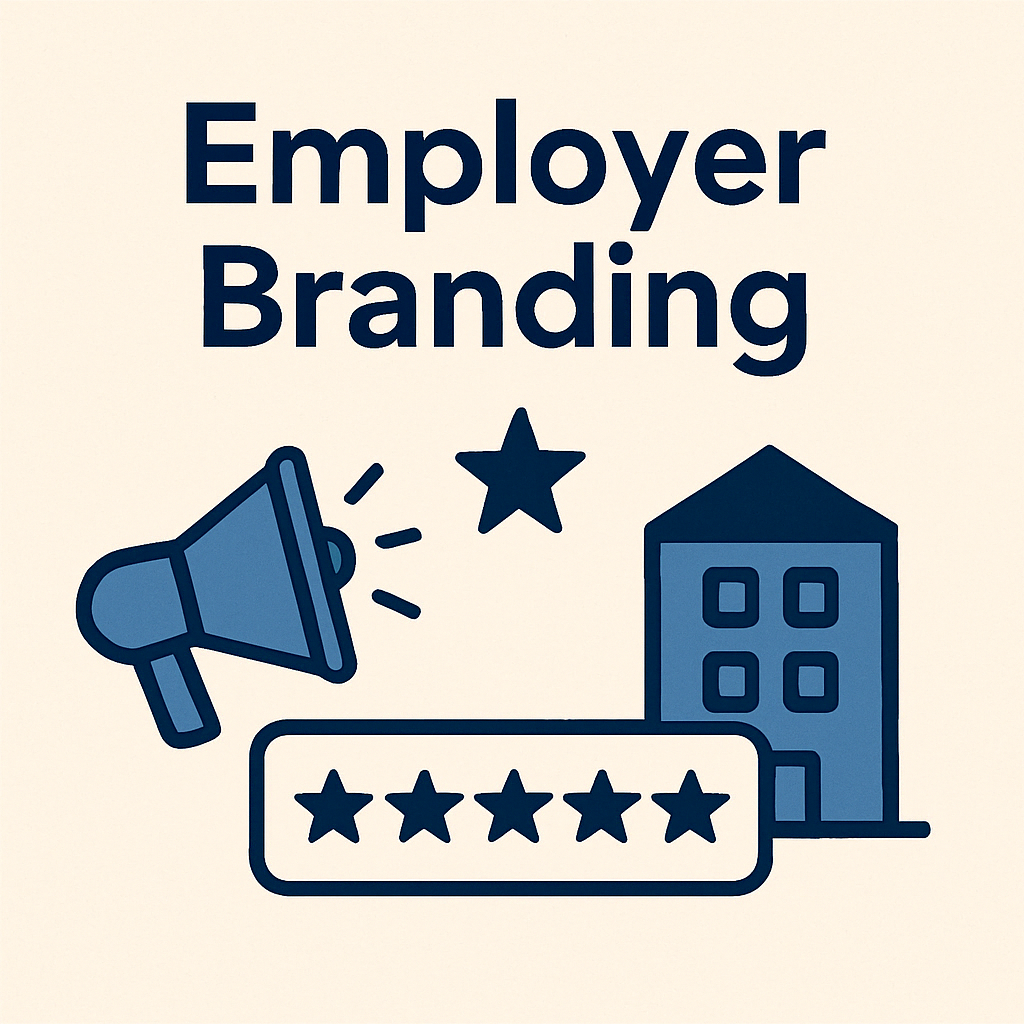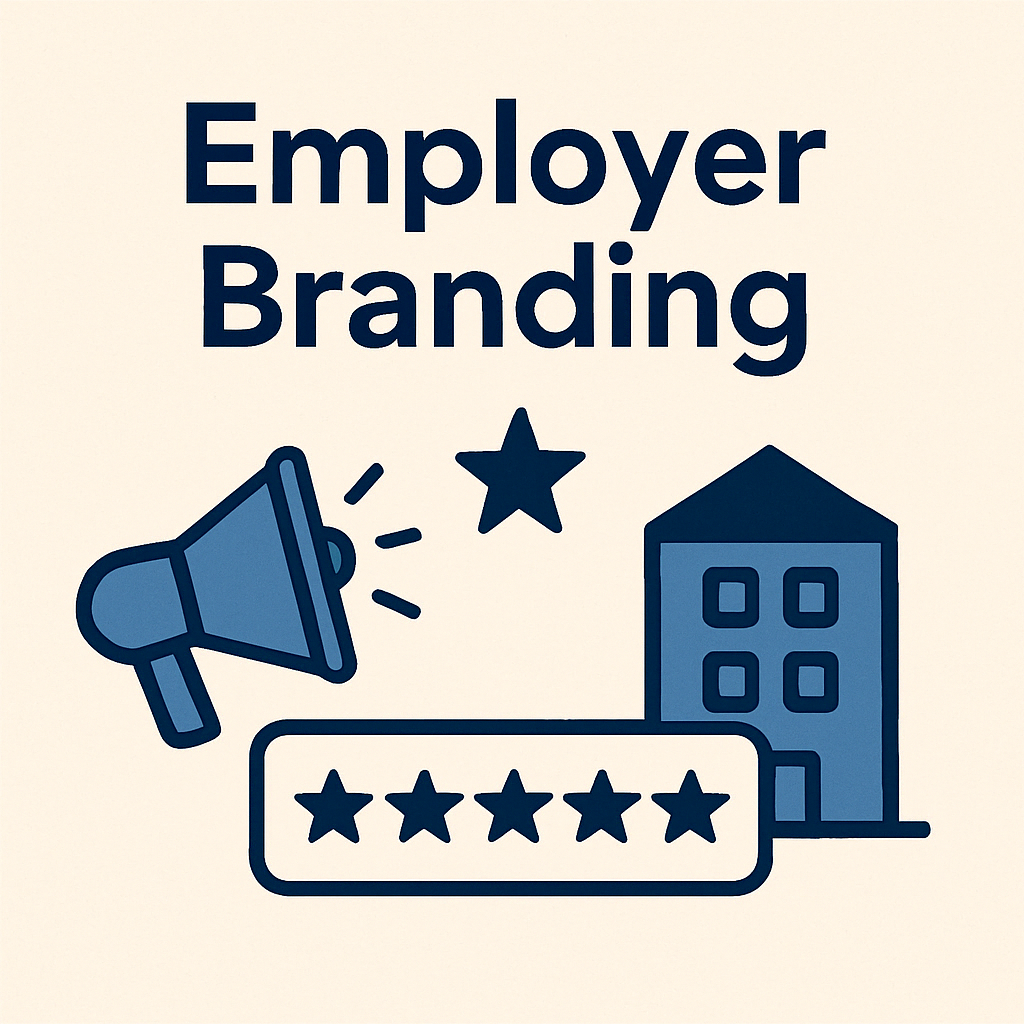What is Employer Branding? Strategies to Attract and Retain Top Talent

In an era where top talent holds the power, Employer Branding differentiates your organization as a desirable workplace. A strong employer brand not only attracts high-quality candidates but also strengthens employee engagement and retention.
What is Employer Branding
Employer Branding encompasses the strategies and messaging an organization uses to shape its reputation as an employer. It reflects the company’s culture, values, mission, and employee experience, communicated both internally and externally through various channels.
Why Employer Branding Matters
Talent Attraction: A compelling brand draws passive and active candidates, reducing reliance on paid sourcing.
Employee Retention: Employees who resonate with your brand are more engaged and less likely to leave.
Cost Reduction: Strong branding lowers recruitment marketing spend and decreases Time to Hire.
Competitive Advantage: Differentiates your company in crowded markets, making you an employer of choice.
Industry Trends in Employer Branding
Employee Advocacy: Organizations empower employees to share authentic stories on social media, amplifying brand reach.
Diversity & Inclusion Messaging: Inclusive branding attracts a wider talent pool and supports DEI initiatives.
Data-Driven Insights: Using analytics from Glassdoor, LinkedIn, and internal surveys to refine branding strategies based on candidate and employee feedback.

Best Practices for Strengthening Your Employer Brand
Define Your EVP (Employee Value Proposition): Clearly articulate what makes your workplace unique, including culture, benefits, and growth opportunities.
Leverage Storytelling: Share real employee experiences through blogs, videos, and social posts to humanize your brand.
Optimize Candidate Experience: Ensure every touchpoint—from career site to interview follow-ups—is aligned and reflective of your brand values.
Measure and Iterate: Track metrics such as Glassdoor ratings, application conversion rates, and employee Net Promoter Score (eNPS) to gauge brand health.
Use Cases for Employer Branding
Campus Recruitment: Position your company as a top choice for graduates through targeted branding events and partnerships.
Talent Community Building: Develop talent pools by engaging prospects with branded content and newsletters.
Reputation Management: Quickly address negative reviews or feedback to maintain a positive employer image.
Related HR Glossary Terms
HR Glossary: Master the Language of Modern HR
FAQs on Employer Branding
Q: How do I measure the success of Employer Branding?
A: Track metrics like career site traffic, application completion rates, Glassdoor/LinkedIn ratings, and employee retention figures.
Q: What are key components of an effective Employer Value Proposition?
A: Clear articulation of culture, career development, benefits, work-life balance, and social responsibility.
Q: Can small businesses benefit from Employer Branding?
A: Absolutely—small businesses can highlight niche advantages like close-knit teams and unique growth opportunities to stand out.
Call to Action (CTA)
Transform your talent sourcing with MokaHR’s AI-driven tools. Build and manage targeted pipelines that drive quality hires faster. Request a Demo
From recruiting candidates to onboarding new team members, MokaHR gives your company everything you need to be great at hiring.
Subscribe for more information

